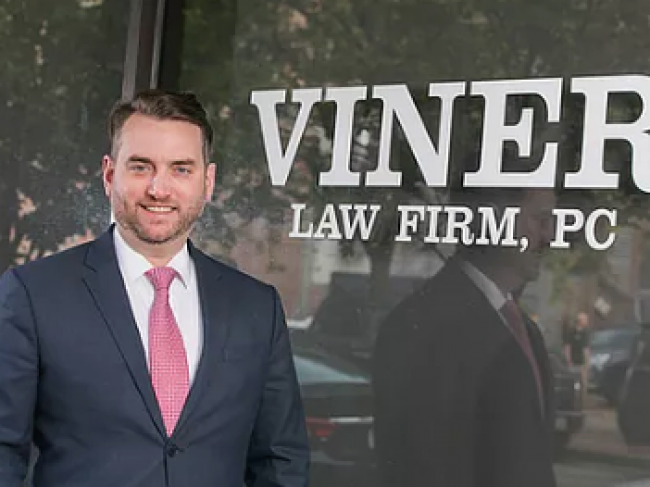In Iowa please remember that you may be eligible for a deferred judgment if you did not refuse the direct breath test at the station if your blood alcohol level was under.15 if you have no prior conviction or deferred judgment for OWI or DWI, and there was no bodily injury to another person. That’s why it’s important to speak with a DUI attorney and to discuss what options are available to you.
Iowa DWI (Sometimes referred to as DWI) arrests give rise to two separate and distinct drunk driving cases: the court case, and Iowa Motor Vehicle Division Case, where the person’s driving privileges are at risk. An Iowa DWI can have severe consequences, and it is critical that anyone accused of drinking and driving in Iowa consult with an Iowa DUI LAWS lawyer near you for a free consultation by calling 1.800.DWI.LAWS.
Iowa DWI cases are brought pursuant to the Iowa DWI code. Iowa Code section 321J.2 prohibits an individual from operating a motor vehicle while under the influence of alcohol, drugs, or a combination of alcohol and drugs. A separate (but related) offense is driving with a blood-alcohol level (BAC or BAL) of .08% or greater.
Iowa OWI / DWI law requires that a defendant’s guilt be proved beyond a reasonable doubt; if there is a reasonable doubt as to any of the elements of the prosecutor’s case, the defendant in an Iowa drunk driving case is entitled to a verdict of “not guilty.” Iowa OWI / DWI convictions cannot be obtained unless the prosecution proves, beyond a reasonable doubt, that the OWI / DWI arrestee:
- Operated a motor vehicle;
- While under the influence of alcohol or drugs; OR
- While having an alcohol concentration of .08 or greater.
Iowa drunk driving cases often hinge on precise legal definitions. “Operating” for purposes of Iowa OWI / DWI (drunk driving) law has been defined by the Iowa Supreme Court as: “the immediate, actual physical control over a motor vehicle that is in motion and/or has its engine running.” Thus, sitting in a vehicle, even with the keys in the ignition, so long as the engine is not running, does not and cannot constitute “operating.” This is an important point for anyone accused of drunk driving in Iowa. An essential element of an Iowa OWI charge is that the defendant be the operator of the vehicle. Otherwise, a drunk driving conviction is legally improper.
OWI / DWI convictions carry serious consequences, both with the court and the Iowa Motor Vehicles Division. It is important to remember that Iowa OWI / DWI arrests trigger two separate actions, and that an Iowa drunk driving defense lawyer will know how to handle the interrelationship between these two entities.
Iowa OWI / DWI convictions have the following consequences in criminal court:
First Offense DWI :
Serious Misdemeanor: Punishable by up to 1 year in jail and/or a fine of up to $1,500.
Mandatory Minimum Penalty: 2 days in jail and a $1,250 fine plus 32% government surcharge of $400.
Note: you may be eligible for a deferred judgment if: you did not refuse the direct breath test at the station; your BAC was under .15; you have no prior conviction or deferred judgment for OWI / DWI, and there was no bodily injury to another person.
Second Offense OWI / DWI :
Aggravated Misdemeanor: Punishable by up to 2 years in prison and/or a fine of up to $5,000.
Mandatory Minimum Penalty: 7 days in jail and a fine of at least $1,850.
DWI convictions and deferred judgments in the last 12 years in any state are counted as prior offenses.
Third Offense DWI:
Class D Felony: Punishable by up to 5 years in prison and/or a fine of up to $7,500.
Mandatory Minimum Penalty: 30 days in jail and a fine of $3,125
This is the highest level of DWI obtainable in the State of Iowa. All subsequent DWI convictions after the 3rd DWI offense are counted as 3rd DWI offenses.
Iowa DWI arrests also trigger an administrative action where the driver’s license may be suspended or revoked. It is very important that anyone arrested for DWI, or any drunk driving charge in Iowa, contact an Iowa DWI lawyer as soon as possible.
A skilled Iowa DWI attorney will know how to handle the administrative hearing to protect the driving privileges of anyone arrested for drinking and driving in Iowa. There are different administrative penalties, depending upon whether it is a first offense DWI, second offense DWI, or third offense DWI. Also, the penalties may change depending upon the blood alcohol level (BAL) or whether a chemical test was taken or refused. Administrative penalties for Iowa DWI arrests, separate and apart from any drunk driving conviction in criminal court, are as follows:
Administrative revocations for test failure – Breath test indicates BAC over .08.
First Offense DWI Violations:
- 180-day revocation
- Eligible for a temporary license immediately as long as there was not an accident causing personal injury or property damage and the chemical test results are under .15.
- Must wait 30 days for a temporary license if the chemical test results are over .15 or an accident occurred.
- Must get an ignition interlock device installed if BAC is greater than .10 or an accident occurred in order to obtain a temporary license.
Ignition interlock devices must be put on all vehicles owned and operated by a person seeking a temporary license.
Subsequent DWI Offenses:
- 1-year revocation
- Not eligible for a temporary license for 1 year
- Must get ignition interlock device to obtain a temporary license
Administrative revocations for test refusal
First DWI Offense:
- 1-year revocation
- Must wait 90 days for a temporary license and must install an ignition interlock device.
Subsequent DWI Offenses:
- 2-year revocation
- Eligible for a temporary license after 1 year, but must get ignition interlock device.
Revocation upon conviction if not revoked otherwise:
First DWI Offense:
- 180 days
- Temporary license and ignition interlock restrictions and requirements are the same as if revoked administratively for both test failures and refusals
Subsequent DWI Offenses:
- 2 years
- Same requirements and restrictions for temporary license and blow and go as if revoked administratively for both test failures and refusals.
Revocations when a deferred judgment is entered
- Revocation for 30-90 days
- Requirements and restrictions for temporary license and ignition interlock devices are the same as for an administrative revocation for a first offense.
Court Ordered Revocation in addition to previously mentioned administrative and court-ordered revocations
Third and Subsequent DWI Offenses:
- 6-year revocation
- Eligible for a temporary license after 2 years but must get ignition interlock device.
Any level of an offense causing personal injury
- Additional 1 year
- Does not affect the timing of temporary license eligibility but must get an ignition interlock device.
Any level of an offense causing death
- 6 years
- Eligible for a temporary license after 2 years but must get ignition interlock device.
Zero Tolerance revocations/Under 21 years of age
.02 to .08 Test Failure
- 60 days for the first offense
- 90 days for subsequent offenses
Refusals
- 1 year for the first offense
- 2 years for subsequent offenses
Never eligible for a temporary license under the zero-tolerance statute
Expungement in Iowa
Currently, there is no provision for the expungement of an OWI conviction from a criminal record in Iowa. If you have been arrested for operating while intoxicated (OWI) or other drunk driving charges, it is critical to consult with a qualified Iowa OWI attorney as soon as possible.








